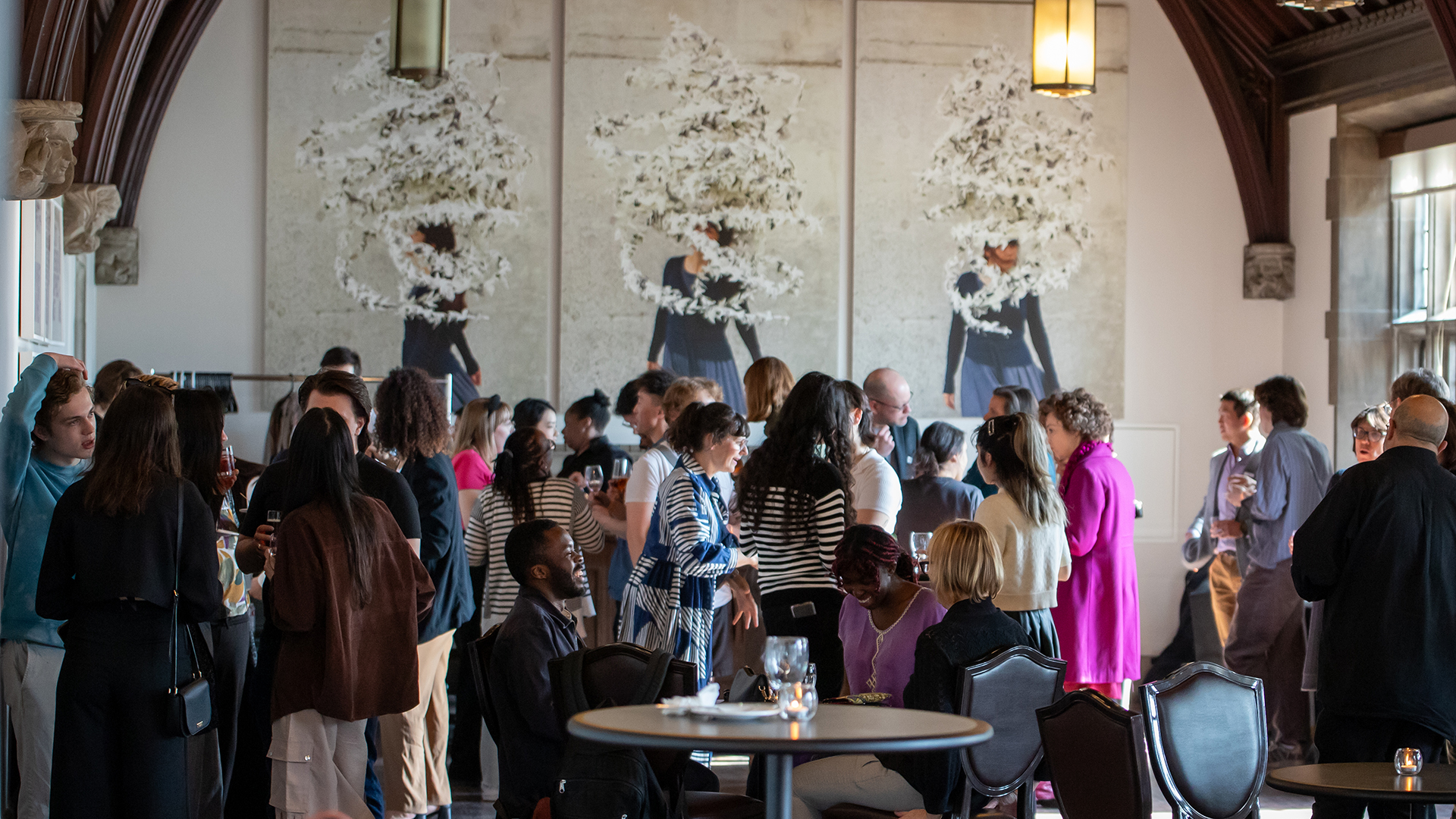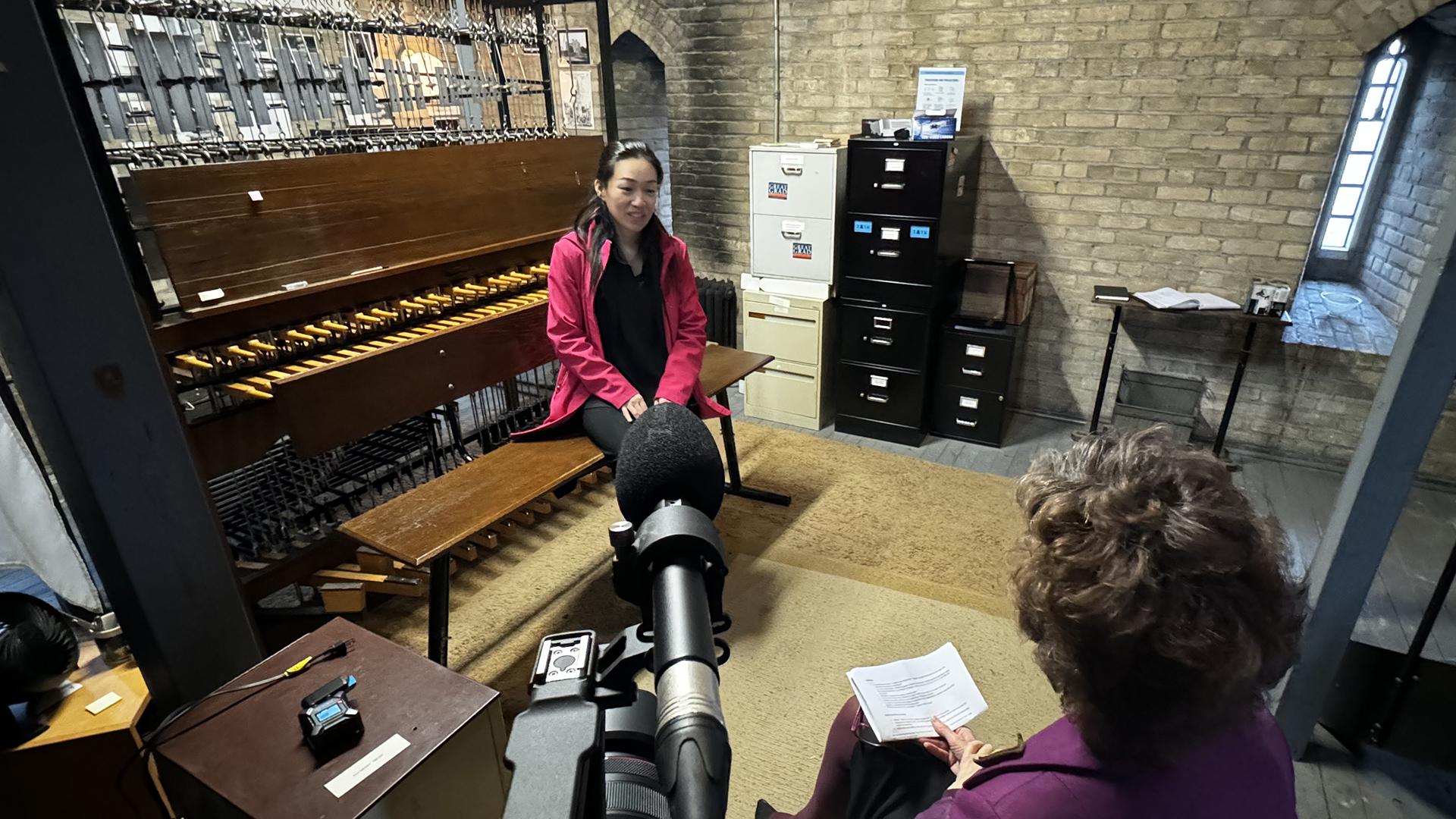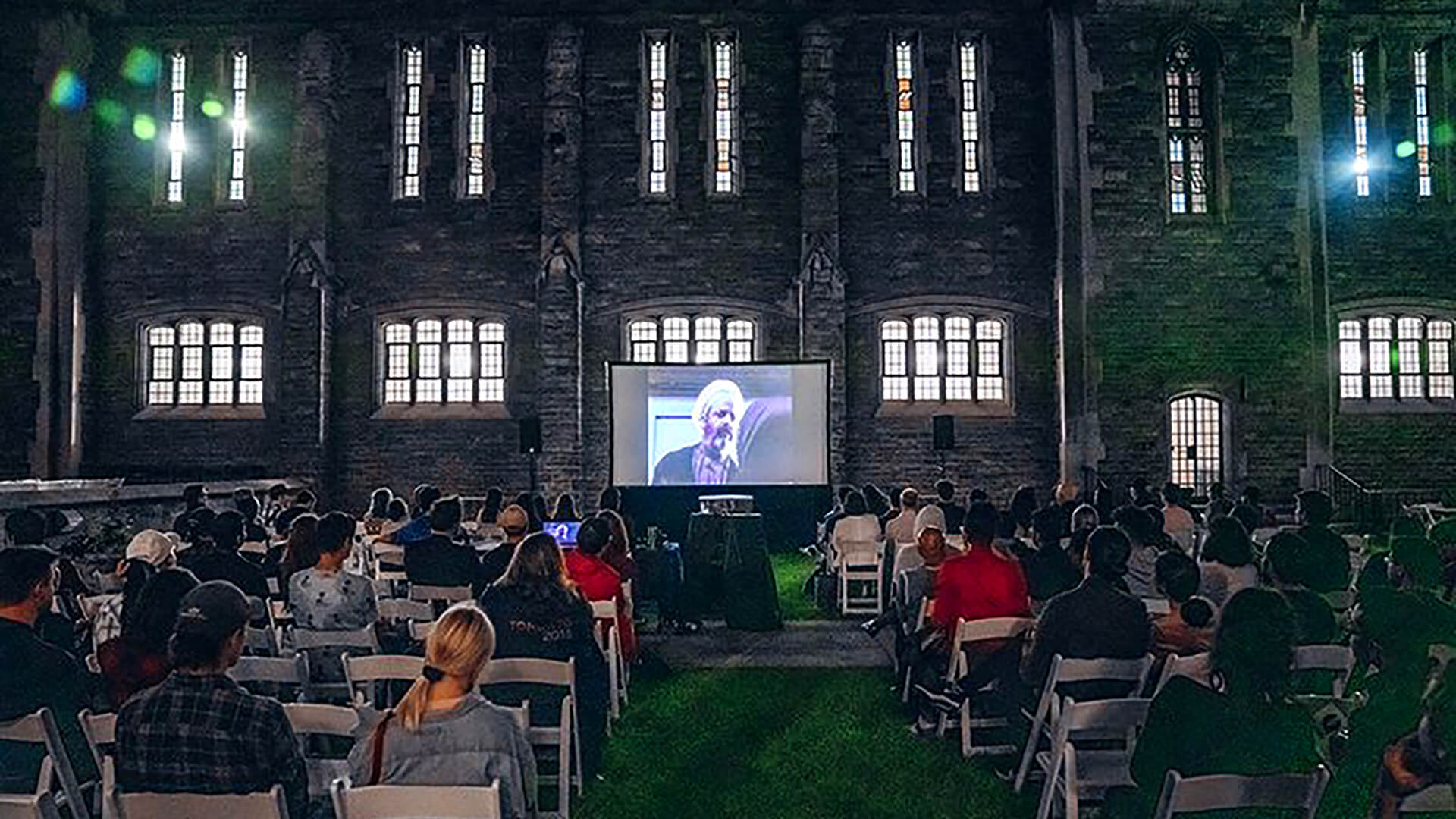Alicia Brown is an Olympian, U of T grad, Hart House’s Membership Sales and Service Associate, personal trainer, and community leader. Over the years, the accomplished track athlete has discovered how to find balance, foster her mental wellbeing, and support others along the way. Her outstanding journey has been fuelled by a commitment to mindfulness and staying grounded, even when she appears to be soaring.
Just before she boarded a flight to Tokyo – her second Games, where she will compete in the 4x400m relay – Alicia shared some of her insights on self-care and caring for others when life gets demanding.
Early lessons
During Alicia’s time as an undergraduate student athlete, finding a balance between training, wellness and academics was essential. Earning her honours degree in Communication, Culture and Information Technology, becoming a Governor General’s Canadian Interuniversity Sport (CIS, now U sport) Top 8 Academic All-Canadian while earning outstanding athletic accolades—including a national title and four CIS gold medals—was a lot to juggle. In retrospect, the 2013 U of T Female Athlete of the Year says she has learned that “nothing is as important or as serious as it is in your own head.” And even when things don’t go as planned, Alicia says her struggles have brought opportunities.
Failure is where you learn, and failure is also what makes the highs feel so strong. I feel my successes deeply because I have experienced hardships so many times along the way. Therefore, it’s important to embrace the journey, no matter where it takes you.
Alicia Brown
Self-care, Olympic style
When balancing so many priorities—career, training, health, and a personal life—sometimes the hardest part is taking a break. For world-class athletes, this means shifting how many of us think about mental health and high performance. “Sport culture needs to move away from the ‘no pain, no gain’ attitude and that ‘show no weakness’ mentality,” Brown explains. This can translate into non-Olympic life as well; taking time to rest, to admit you’re vulnerable to burnout, is key.
Alicia fosters her mindfulness through meditation, gratitude journaling, intention setting, visualization and focusing on elements of life’s challenges that are within her control.
Accepting and giving support

Along the way, Alicia has also understood the importance of accepting help from others. “I wouldn’t be the person that I am today without my support system. I lean on my partner, my family, coaches and training partners, my integrative support team and colleagues at Hart House every day.”
She credits this community for helping her to maintain balance while she worked to qualify for the Rio and Tokyo Olympics. “Hart House has allowed me to develop as a full person. I’m extremely grateful for the team, I’ve always felt supported throughout my journey.”
As a personal trainer, with Olympic calibre talents no less, Alicia gives a lot of herself to her clients, sharing her insights on mindfulness and wellness. But she says that these relationships are mutually beneficial. “Supporting clients is a humbling experience and it helps me take myself less seriously. I love watching them succeed. I can often see their growth quicker than they do and it’s so beautiful.”
While it’s not every day that people have an opportunity to be trained by an Olympian, from Alicia’s perspective, demystifying how we perceive Olympic athletes benefits both athletes and their admirers. She emphasizes that Olympians are everyday people with similar struggles as everyone else. “I didn’t have that realization until I took the athlete off the pedestal,” she explains. Alicia says this was an a-ha moment for her that helped to make big dreams more attainable; she suggests that we all look at who we put on a pedestal and try to see them more as we see ourselves. This relatability can help to make our ambitions seem more within reach.
This wholistic approach is in line with Hart House’s commitment to supporting mental health, which Alicia further supports through the Well Being Collective @ Hart House. She helped to establish this collaborative initiative that seeks to explore wellness while centering and highlighting the experiences and practices of Indigenous, Black, and Racialized students as well as those of the greater community. “The work that we do with the Well Being Collective @ Hart House allows me to create and share structures and programs that support the wellness journey of racialized people like myself. I didn’t often see myself represented in mainstream media growing up. If I can help to show other Black and Brown girls that they belong in sport and wellness spaces, then I am all in.”
So, when these mentees, fans, fellow Blues athletes, Hart House colleagues and clients watch Alicia at the starting block in Tokyo, she hopes they won’t just see an amazing athlete, but an ordinary person, just like them, who believed she could do an extraordinary thing.




